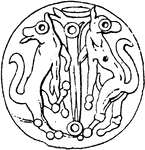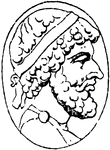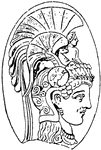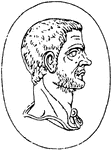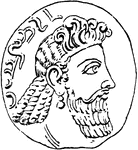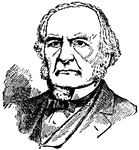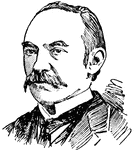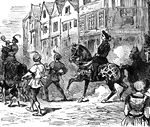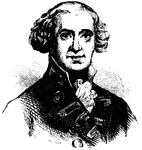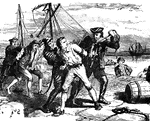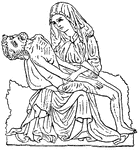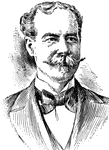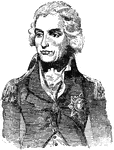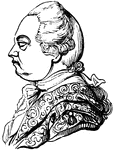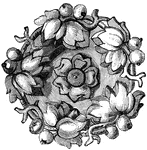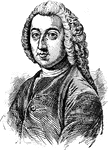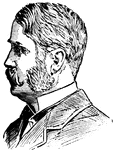
Sir William S. Gilbert
(1836-1911) English parodist that teamed up with Sir Arthur Sullivan to write 14 operas.
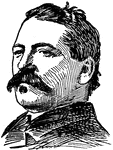
Samuel Gompers
(1850-1924) British labor leader who became a major figure in the American labor movement.

Gorkha Coin
"Gorkha deoasea coinage; rubbing from coin in British Museum." —The Encyclopedia Britannica, 1910
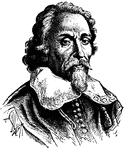
William Harvey
(1578-1657) English physician who published his treatise on the circulatory system in 1628.

Queen Henrietta Maria
Queen Henrietta Maria was Queen Consort of England, Scotland and Ireland through her marriage to Charles…
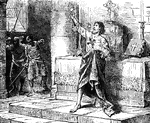
Henry III of Winchester
Henry III is one of the least-known British monarchs, considering the great length of his reign. He…
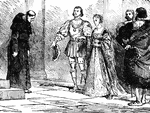
Henry the VIII and His Wives
Henry VIII was married six times during his life. First, to Catherine of Aragon, Anne Boleyn, Jane Seymor,…
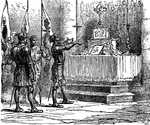
Henry VII
Known greatly as the king of hearts, or the man of ruthless wonder, Henry was born in Pembroke Castle,…
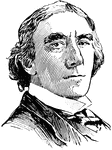
Sir Henry Irving
(1838-1905) The greatest English actor of his time. The first actor to receive knighthood.
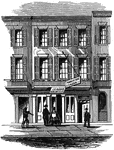
Jackson's Headquarters, New Orleans
During the War of 1812, when British forces threatened New Orleans, Jackson took command of the defenses,…

The Jersey Prison Ship
One of the prisons used by the British at New York during the American Revolutionary War.
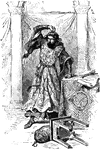
John's Anger after Signing Magna Charta
All this time John Lacklands cruelty and savageness were making the whole kingdom miserable; and at…

Kearsarge Sinking the Alabama
The sinking of the Alabama by the Union Kearsarge. Some Confederates aboard the Alabama escaped to England…

King Henry and His Barons
King Henry was a builder of beautiful churches. Westminster Abbey, as it is now, was one. And he was…
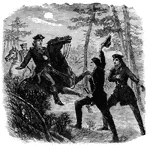
Grace and Rachel Martin Capturing Two British Officers
Two women dressed as men arresting a pair of British officers.

Mary I
Mary, the fourth and penultimate monarch of the Tudor dynasty, is remembered for returning England from…
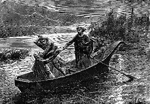
Murder of Prince Arthur
As a kind of joke, John, King Henry's youngest son, had been called Lackland, because he had nothing…

Florence Nightingale
"Miss Florence Nightingale did remarkable work during the Crimean War for the relief of sick and wounded…
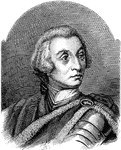
General James Oglethorpe
James Oglethorpe (1/2/22/1696 - 6/30/1785) was a British general, a philanthropist and was the founder…

Decorative Panel
This decorative panel is a British design. In the center is a figure of Queen Eleanor, and the background…

Philip II
Philip sought an alliance with the Kingdom of England, marrying the Catholic Queen Mary I of England…
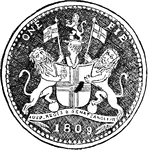
Pie
The smallest Anglo–Indian copper coin, equal to one third of a pice. About one fourth of a United…
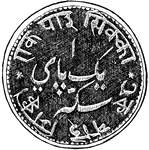
Pie
The smallest Anglo&mdashIndian copper coin, equal to one third of a pice. About one fourth of a United…
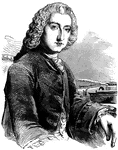
William Pitt, Earl of Chatham
(1708-1778) Also known as Pitt the Elder. He was an English statesman who formed a new ministry in 1766.

Cornice Pole-End
This cornice pole-end is a British design. It has a floral design that is made out of blue-bells.
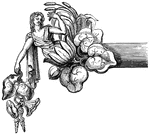
Cornice Pole-End
This cornice pole-end is a British design in a floral style. It has a figure and bunches of hops in…
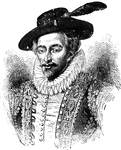
Sir Walter Raleigh
Raleigh's plan for colonization in Virginia in North America ended in failure at Roanoke Island, but…

Richard Removing the Archduke's Banner
During one of King Richard the Lion-Heart's crusades the city of Acre was taken over and a prince, Leopold,…
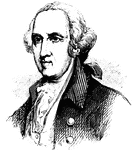
James Rivington
(1724-1803) British publisher who emigrated in 1760 to Philadelphia and founded the New York Gazette.…
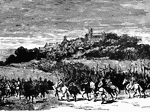
William Rufus II
He is sometimes called the Red King, but more commonly William Rufus. Things went worse than ever with…

The Sayre House
The Sayre House in Southampton, New York which was occupied by the British during the Revolutionary…

Sceat, an Early Anglo Saxon Coin
"Specimens occur in gold, but most frequently in silver. Their average weight is 15 grains, and they…

Sea lavender
"Sea lavender (statice limonium) is a native British plant, being fairly common in certain…

Second Anglo-Afghan War
The Second Anglo-Afghan War started after Russia and Britain ended with the June 1878 Congress of Berlin.…
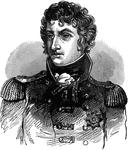
Sir John Coape Sherbrooke
Sir John Coape Sherbrooke (baptised April 29, 1764 – February 14, 1830) was a British soldier…
